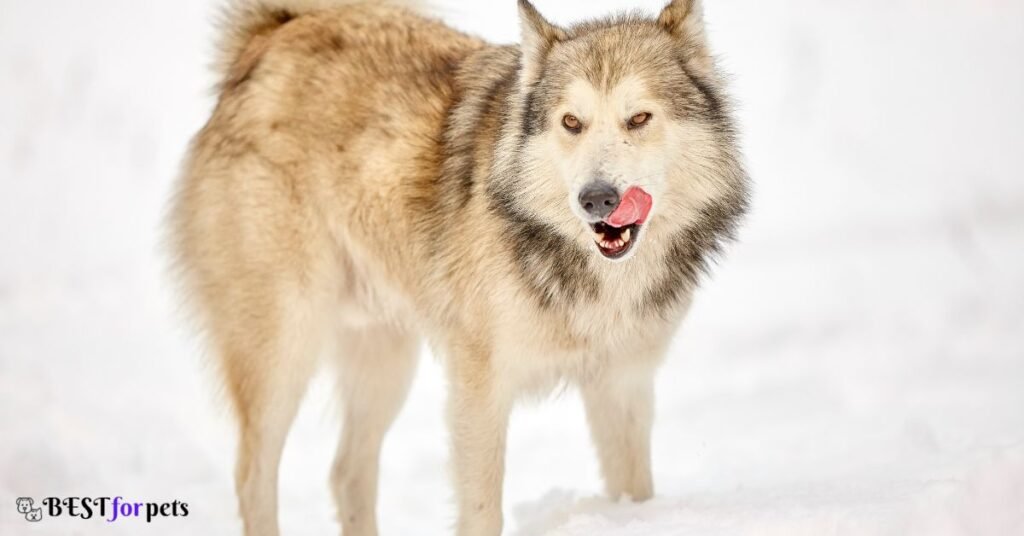Wolf Dog Vs Husky Comparison
Wolf dog vs Husky: Origins and Breeding
Wolf dogs, also known as wolf dogs or wolf hybrids, are a crossbreed between domestic dogs and various subspecies of wolves. The intention behind breeding wolf dogs was to capture the beauty and mystique of wolves while maintaining certain desirable traits of domesticated dogs. The percentage of wolf genes in a wolf dog can vary, resulting in a wide range of appearances and temperaments.
On the other hand, Siberian Huskies trace their origins back to northeastern Siberia, where they were bred by the Chukchi people for sledding and endurance in harsh Arctic conditions. Huskies are purebred dogs and do not have any wolf ancestry. Their physical resemblance to wolves is purely coincidental.
Wolf dog vs Husky: Temperament and Behavior
One of the significant differences between wolf dogs and huskies lies in their temperament and behavior. Wolf dogs retain certain wild instincts and characteristics inherited from their wolf ancestors. They may exhibit a more independent nature and a higher prey drive. Wolf dogs require experienced handlers who can provide them with proper socialization, training, and a stimulating environment.
On the other hand, Siberian Huskies are known for their friendly, gentle, and sociable nature. They are highly pack-oriented and enjoy the company of both humans and other dogs. Huskies are generally good-natured, affectionate, and playful. However, they do have a strong prey drive and a tendency to wander, so proper containment measures are essential.

Wolf Dog vs Husky: Physical Characteristics
Both wolf dogs and huskies exhibit stunning physical characteristics that contribute to their allure. Wolf dogs can vary greatly in appearance, reflecting the diverse range of wolf subspecies used in their breeding. They often possess a wolf-like face, erect ears, and a lean, muscular body. Their coat colors can include variations of gray, black, brown, and white, resembling the coat patterns seen in wolves.
Siberian Huskies, on the other hand, have a distinct wolf-like appearance with striking almond-shaped eyes that can be blue, brown, or heterochromatic (each eye a different color). They have a thick double coat that helps insulate them in cold weather, and their coat colors can include various combinations of black, white, gray, red, and sable.

Wolf Dog Vs Husky : Health
Health is a critical aspect to consider when comparing wolf dogs and huskies. While both breeds generally exhibit good health, there are some differences to be aware of.
Wolf dogs, as hybrid animals, may be prone to certain health issues commonly found in wolves and domestic dogs. These can include hip dysplasia, which affects the hip joint and can lead to lameness and arthritis. Additionally, some wolf dogs may be susceptible to genetic disorders, such as autoimmune diseases and allergies. It is crucial for potential owners of wolf dogs to obtain health clearances and genetic testing from reputable breeders to minimize the risk of inherited health problems.
Siberian Huskies, on the other hand, are generally a healthy breed with fewer health concerns compared to wolf dogs. However, they can still be prone to certain conditions. One common issue seen in huskies is eye problems, including cataracts and progressive retinal atrophy. They may also be susceptible to certain inherited conditions like hip dysplasia and skin allergies.
Wolf Dog Vs Husky : Trainability
When it comes to trainability, there are notable differences between wolf dogs and huskies. While both breeds are intelligent, their inherent characteristics and backgrounds play a significant role in their trainability.
Wolf dogs, being a hybrid of wolves and domestic dogs, possess a combination of wild and domestic traits. This can make training more challenging compared to purely domesticated breeds. Wolf dogs tend to retain some of the independent and instinctual behaviors of their wolf ancestors, which can affect their response to training commands.
They may have a strong prey drive and a tendency to exhibit territorial or protective behaviors. As a result, they require experienced and patient handlers who understand their unique needs. Early socialization and consistent, positive reinforcement training methods are crucial to establishing boundaries and ensuring their safety and the safety of others.
Huskies, on the other hand, are generally intelligent and eager to please. However, they can also be independent and stubborn at times. Huskies were bred to work in packs and have a strong sense of hierarchy. This can make training a husky a bit more challenging, as they may test boundaries and display a “what’s in it for me?” attitude.
It’s important for owners to establish themselves as firm yet fair leaders and use positive reinforcement techniques that include rewards, praise, and consistency. Early and ongoing socialization is essential for huskies to develop good manners and prevent behavioral issues.
Wolf dog vs Husky: Who is more strong?
When comparing the strength of a wolf dog and a husky, it is important to consider that strength can be subjective and can vary between individuals within each breed.
Wolf dogs, due to their hybrid nature and the potential inclusion of wolf genetics, may possess a higher level of physical strength compared to huskies. The influence of wolf ancestry can result in increased muscle mass, endurance, and overall power.
Huskies, on the other hand, are bred for endurance and pulling power. They are known for their ability to pull sleds over long distances in harsh Arctic conditions. While they may not possess the same level of raw strength as wolf dogs, they exhibit impressive strength and stamina for their size.
Wolf Dog Vs Husky : Adaptability
When it comes to adaptability, there are some differences between wolf dogs and huskies. Wolf dogs tend to have a more limited adaptability compared to huskies. Due to their hybrid nature and the influence of their wolf ancestry, wolf dogs may have specific environmental and social requirements. They are often more suited to homes with experienced owners who can provide a structured and stimulating environment that meets their unique needs. Wolf dogs may have a higher sensitivity to changes in routine or environment, requiring careful management and gradual introductions to new situations.
Huskies, on the other hand, are generally more adaptable to different environments and living situations. They have a long history of living in harsh Arctic climates and are accustomed to diverse weather conditions. Huskies can adapt well to different living arrangements, including apartments, as long as they receive ample exercise and mental stimulation. However, it’s important to note that huskies have a strong instinct to wander and explore, so proper containment and supervision are necessary to ensure their safety.
In summary, while huskies are generally more adaptable to different living conditions, wolf dogs require a more specific and structured environment that meets their unique needs and considers their wild ancestry. Owners of both breeds should provide appropriate mental and physical stimulation to ensure their well-being and happiness.
Wolf Dog Vs Husky : Nutrition
Proper nutrition is crucial for the health and well-being of both wolf dogs and huskies. However, there are some considerations to keep in mind when it comes to their dietary requirements.
Wolf dogs, due to their hybrid nature and potential for retaining some wild instincts, may have specific dietary needs. It is important to consult with a veterinarian or a specialist in wolf dogs to determine the appropriate diet for these animals. Their diet may require a balance between high-quality commercial dog food and raw meat or a specialized diet that mimics their natural feeding habits.
Huskies, being domesticated dogs, have dietary requirements similar to other dog breeds. They thrive on a balanced diet that consists of high-quality commercial dog food. It is essential to choose a food that is appropriate for their age, size, and activity level. Additionally, huskies should be monitored for weight management, as they can have a tendency to gain weight if overfed or not given enough exercise.
Frequently Asked Questions
Are wolf dogs legal to own as pets?
The legality of owning a wolf dog varies depending on the jurisdiction. In some areas, owning a wolf dog is prohibited or heavily regulated due to concerns about safety and the potential for hybridization with wild wolf populations. It is crucial to research local laws and regulations and consult with experts to understand the legal considerations associated with owning a wolf dog in your area.
Can wolf dogs be fully domesticated?
While wolf dogs are a crossbreed between domestic dogs and wolves, it’s important to note that they retain certain wild instincts and characteristics inherited from their wolf ancestors. Fully domesticating a wolf dog can be challenging, and they often require experienced handlers who can provide proper socialization, training, and a stimulating environment.
Are huskies good family pets?
Yes, huskies are generally good family pets. They have a friendly, gentle, and sociable nature, making them suitable for households with children. However, it’s important to note that huskies are active and energetic dogs that require regular exercise and mental stimulation. Proper training and socialization from an early age are also essential to ensure they develop good manners and behaviors.
Do wolf dogs and huskies get along well with other pets?
The compatibility of wolf dogs and huskies with other pets can vary. Both breeds have a high prey drive, which can make them more likely to chase or view smaller animals as prey. Proper socialization and introductions are important when introducing them to other pets. It’s crucial to supervise interactions and provide a controlled and safe environment to ensure the well-being of all animals involved.
How much exercise do wolf dogs and huskies need?
Both wolf dogs and huskies are active breeds that require regular exercise to keep them physically and mentally stimulated. Wolf dogs, being a hybrid with potential for higher energy levels, may have even greater exercise needs. Daily activities such as long walks, runs, or engaging in interactive play sessions are important for meeting their exercise requirements.
Can wolf dogs and huskies be trained?
Both breeds are trainable, but wolf dogs may require more experienced handlers and specific training techniques due to their hybrid nature and potential wild instincts. Huskies are generally intelligent but may exhibit some independence and stubbornness during training.
Do wolf dogs and huskies shed a lot?
Both wolf dogs and huskies have thick double coats and shed seasonally. They require regular grooming and brushing to manage shedding, especially during the shedding seasons.

